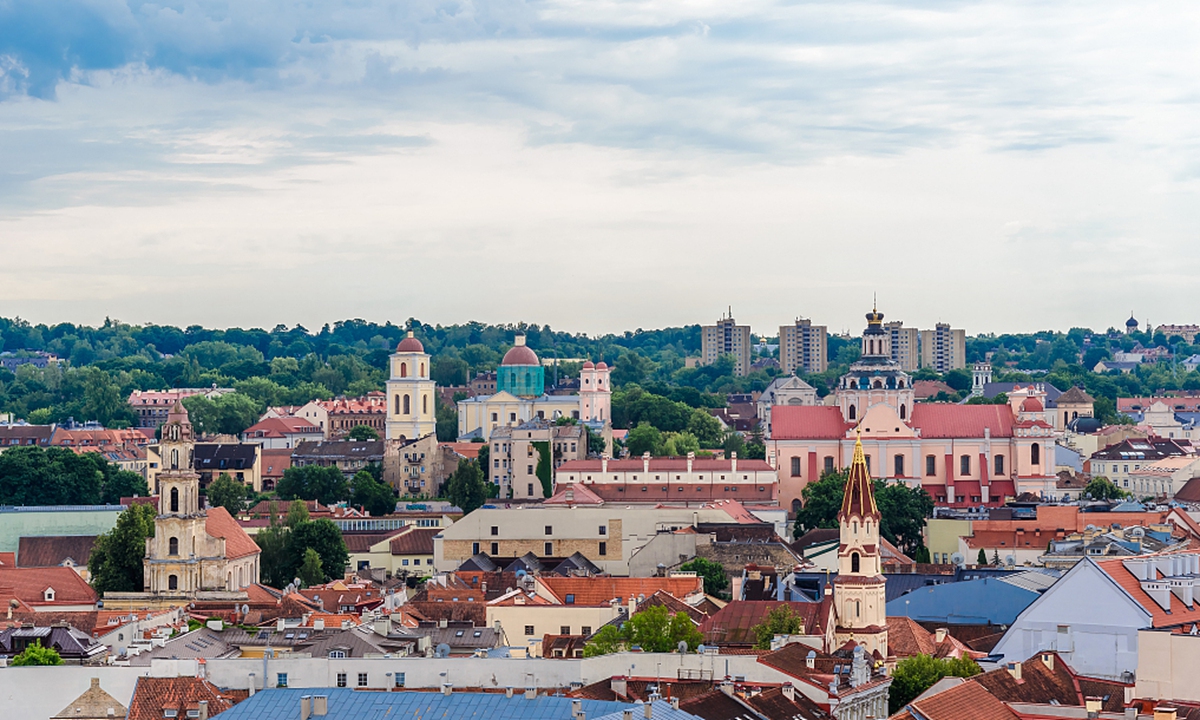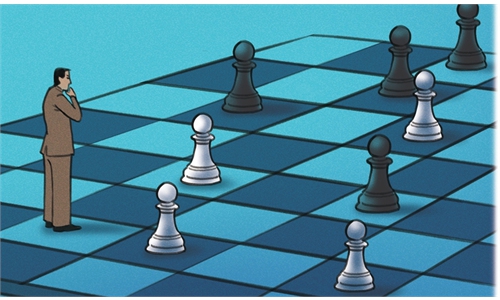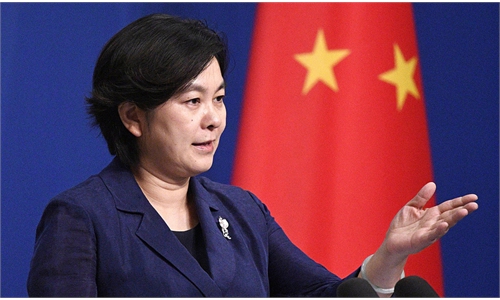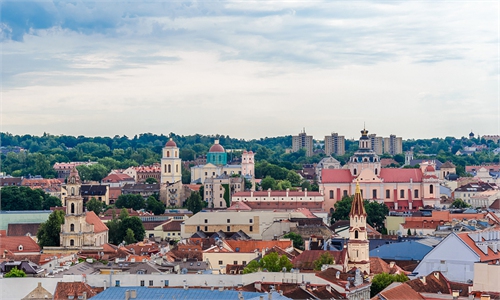
View of Vilnius, capital of Lithuania Photo: VCG
An anti-vaccine protest in front of the Lithuanian parliament turned violent on Tuesday, after the country planned to impose a vaccine passport for people to access public places from mid-September. According to Lithuanian National Radio and Television, the protest led to injuries.
The chaos reflects the lack of governance ability and political stability of the Lithuanian government. The country is now facing a domestic COVID-19 epidemic and its relations with China and Russia have also worsened. Facing such domestic and foreign challenges, Lithuania cannot count too much on the US, which Lithuania mainly relies on for security.
Lithuania's politics takes place in a framework of a unitary semi-presidential representative democratic republic. The president of Lithuania is the head of state, and the prime minister of Lithuania is the head of government. As a multi-party system, the government of Lithuania is not dominated by any single political party. Under such a political structure, the government may not be efficient and determined enough to deal with protests or other social chaos.
Lithuania declared that it was an independent nation in 1990, the first of the Soviet republics to do so. It then became a full-fledged member of NATO in 2004, and its security has mostly relied on the US-led alliance since then. When the US asks Lithuania to do things out of Washington's strategic interests, the latter has no ability to say no. This explains why Lithuania, as a small country, has taken the initiative to provoke big countries, which is inconsistent with the logic of international relations.
And when it comes to the internal chaos in Lithuania, Washington has no interests in providing support for it at all. "The US may give nothing but a 'blank check' to Lithuania. As Lithuania relies on Washington for security, the US has continued to create tensions in the region to give Lithuania the illusion that Washington can protect it. To a certain extent, this has also contributed to Lithuania's confidence in provoking other countries," Cui Hongjian, director of the Department of European Studies at China Institute of International Studies, told the Global Times.
The US tends to provide verbal support, security illusions and empty promises to rope in countries like Lithuania, Cui said.
The Lithuanian government has followed the US in political issues and ideology, which has led to the double standards in response to its own domestic challenges. In January, Lithuanian President Gitanas Nausėda criticized Russia's "violent suppression of protests." However, Lithuanian police have used tear gas against protesters outside the national parliament in the latest protests. Russian Foreign Ministry spokesperson Maria Zakharova asked on Tuesday, "Why does all that democratic perfume and liberal flavor of our Western partners and their satellites suddenly disappear when it comes to managing the internal situation and suppressing protests at home?"
The current situation is a severe test for Lithuania. Considering that Washington may not offer any substantial help, how the messy situation will develop depends on whether the Lithuanian government will have enough ability to deal with it.
Lithuania must realize that blindly following the US will neither help calm the chaotic demonstrations in the country, nor help it gain a proper position in the international community. The support the US can provide is very limited. Worse, Washington may further plunge Lithuania into a state of domestic and foreign difficulties. Instead of provoking big countries in exchange for support from the US, it is better for Lithuania to focus on improving its own governance capabilities and stabilizing domestic political situation.



